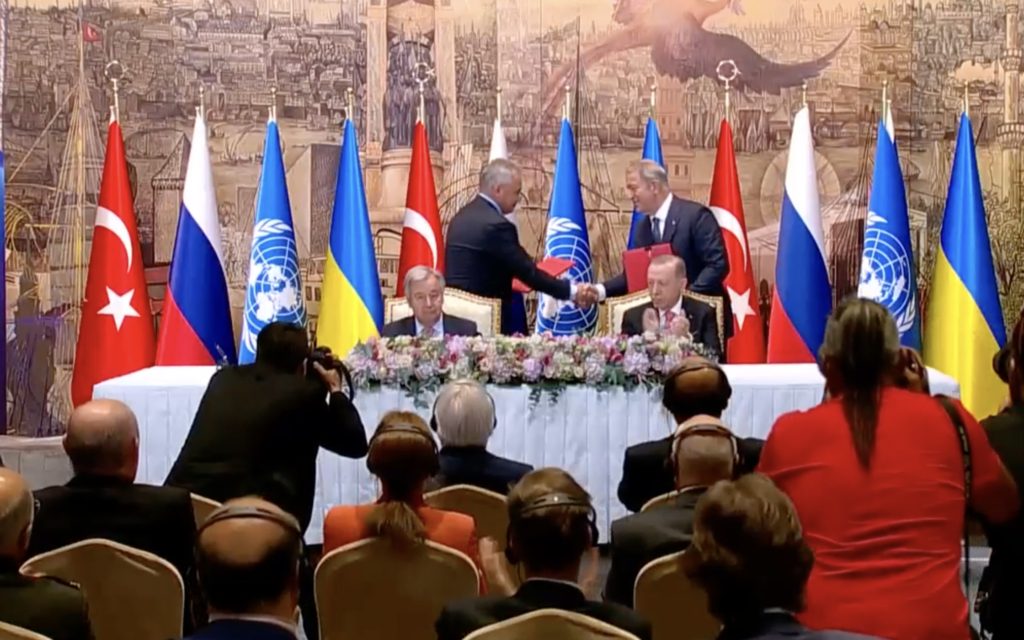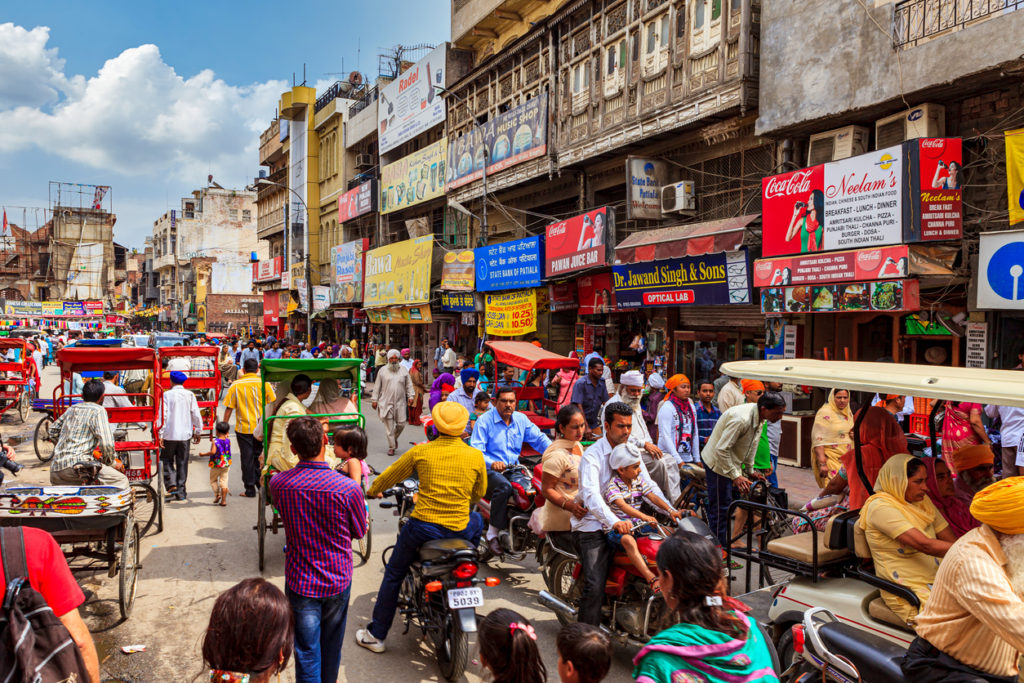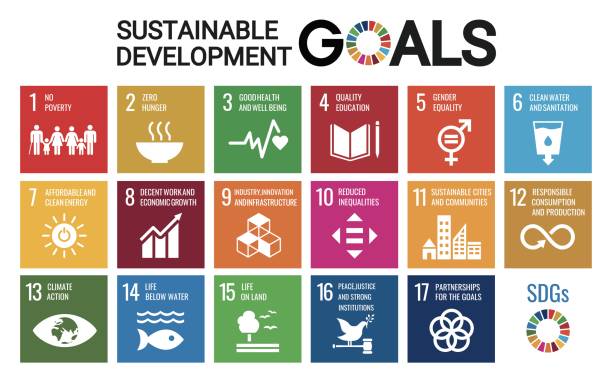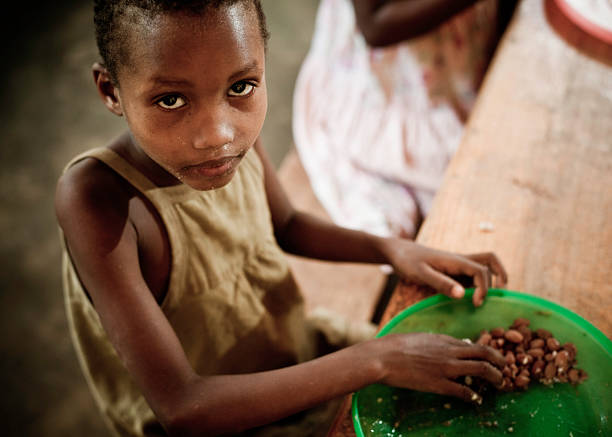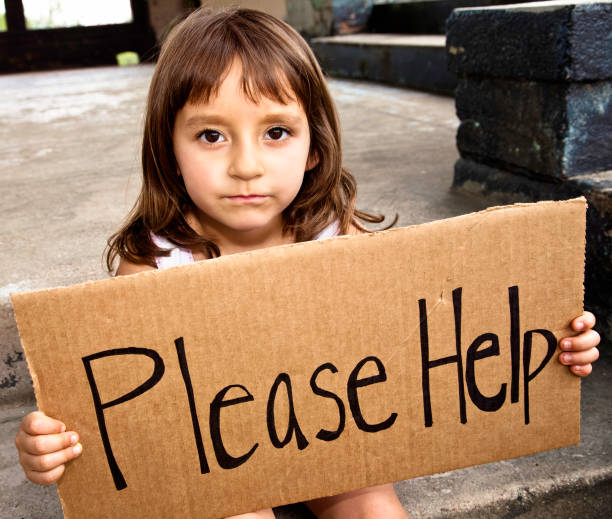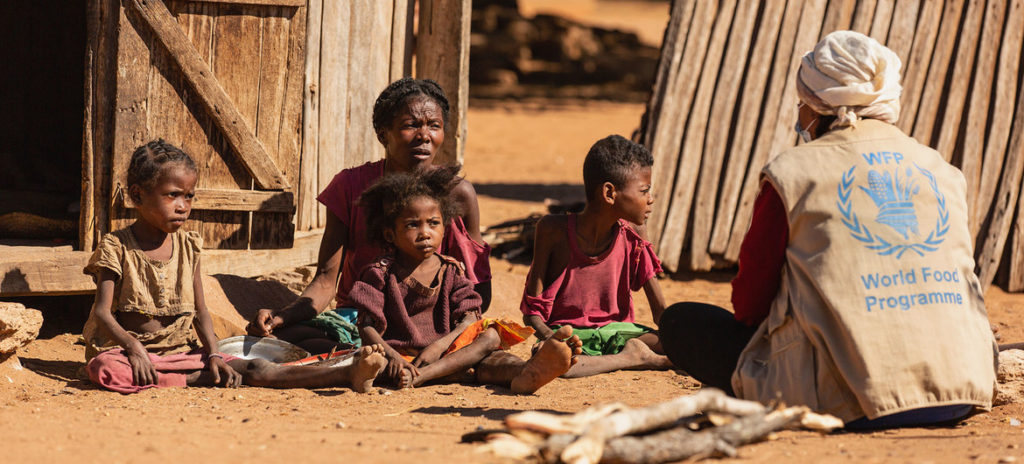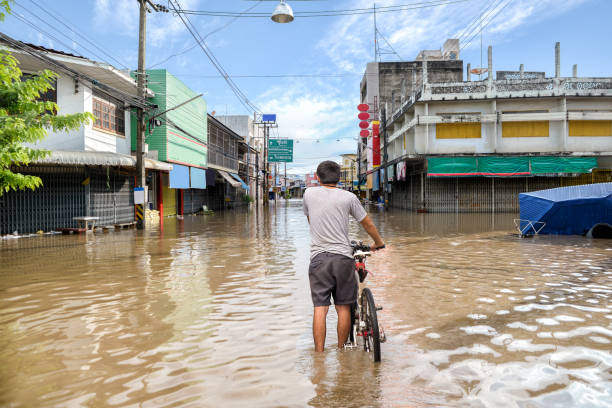UPDATE: UN sets up coordination center in Istanbul to speed up Ukraine’s wheat exports
watch video news
Istanbul/New York, July 27 – A Joint Coordination Center (JCC) comprising representatives of the United Nations, Ukraine, Russia and Türkiye was set up in a collective effort to resume shipments of Ukraine’s wheat and food products and Russian fertilizers to countries that need those commodities.
The UN said the JCC will facilitate the implementation of the Black Sea Grain Initiative signed on July 22 in Istanbul to establish a humanitarian maritime corridor that will allow shipments of grain, food stuffs and fertilizers stuck in Black Sea ports in Odesa, Chornomorsk and Yuzhny since Russian military invaded Ukraine on February 24 this year. It said the center will monitor the movement of commercial vessels to ensure compliance with the initiative; focus on exporting bulk commercial grain and related food commodities, ensure the on-site control and monitoring of cargo from Ukrainian ports; and report on shipments facilitated through the initiative.
Speaking in Istanbul after swiftly forming the JCC, Under-Secretary-General for Humanitarian Affairs and Emergency Relief Coordinator, Martin Griffiths, said: “The swift opening of the Joint Coordination Centre was made possible with the invaluable support from Türkiye in providing the parties with a physical platform to help operationalize the Black Sea Grain initiative, and with the commitment by the Russian Federation and Ukraine in nominating and sending quickly their senior representatives to work together, directly and in partnership, in implementing the agreement.”
“I am hopeful that their swift collective action will translate quickly and directly into much-needed relief for the most vulnerable food insecure people around the world,” he said.
Griffiths said Frederick J. Kenney, who is currently serving as the Director of Legal and External Affairs at the International Maritime Organization in London, will represent the UN as an interim representative in the JCC.
“It is extremely encouraging to see the parties focusing on implementing the initiative,” Kenney said at the opening ceremony of JCC. “Work at the center is non-stop with the aim to see the first shipments heading out of Ukrainian ports quickly, safely and effectively.”
The JCC was set up shortly after a deal was signed on July 22 to export foods from Ukraine and Russia in an effort to stabilize global food prices. The agreement to export Ukraine’s food products and Russian food and fertilizer to the rest of the world through the Black Sea would help stabilize global food prices, UN Secretary-General Antonio Guterres said at a signing ceremony with representatives of Russia, Ukraine and Turkey.
The Black Sea Initiative would free 22 million tons of grain and food products blocked at Black Sea ports since February 24 this year. Russia and Ukraine’s wheat and Russian fertilizer are major commodities needed in developing countries.
“It will bring relief for developing countries on the edge of bankruptcy and the most vulnerable people on the edge of famine,” Guterres said. “And it will help stabilize global food prices which were already at record levels even before the war – a true nightmare for developing countries.”
Guterres said the agreement will allow shipments of high volume of commercial food exports from the Ukrainian ports in Odessa, Chernomorsk and Yuzhny and urged full implementation of the deal.
“We count on the government of Türkiye to maintain its critical role going forward,” he said. “I am here to pledge the full commitment of the United Nations. I urge all sides to spare no effort to implement their commitments. We must also spare no effort for peace. This is an unprecedented agreement between two parties engaged in bloody conflict. But that conflict continues.”
At the signing ceremony with the presence of Turkish President Recep Tayyip Erdogan, Russian Defense Minister Sergei Shoigu and Ukrainian Infrastructure Minister Oleksandr Kubrakov signed separate deals with Guterres and Turkish Defense Minister Hulusi Akar.
The Commodity Markets Outlook released by the World Bank in April this year showed that Russia’s war in Ukraine has impacted on commodity markets with an increase in prices in energy, fertilizer and foods, which were already rising in the past two years.
It said the Ukraine war’s impact could be longer-lasting than previous shocks because price increases have been broad-based across all fuels and price increases of some commodities are also driving up prices of other commodities.
UN agencies said in a report released on July 6 that the number of people affected by hunger globally rose to as many as 828 million in 2021, an increase of about 46 million since 2020 and 150 million since the outbreak of the COVID-19 pandemic. The report provided fresh evidence that the world is moving further away from its goal of ending hunger, food insecurity and malnutrition in all its forms by 2030.
The 2022 edition of The State of Food Security and Nutrition in the World (SOFI) report presented updates on the food security and nutrition situation around the world, including the latest estimates of the cost and affordability of a healthy diet. The report also looks at ways in which governments can repurpose their current support to agriculture to reduce the cost of healthy diets, mindful of the limited public resources available in many parts of the world. The news release was jointly published by the Food and Agriculture Organization (FAO), the International Fund for Agricultural Development (IFAD), the UN Children’s Fund (UNICEF), the UN World Food Programme (WFP) and the World Health Organization (WHO).
By J. Tuyet Nguyen
United Nations correspondent journalists – United Nations correspondent journalists – United Nations correspondent journalists
United Nations journalism articles – United Nations journalism articles – United Nations journalism articles
United Nations News – United Nations News – United Nations News
UPDATE: UN sets up coordination center in Istanbul to speed up Ukraine’s wheat exports Read More »

